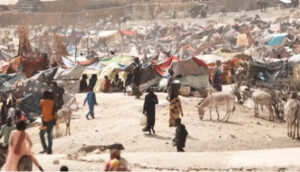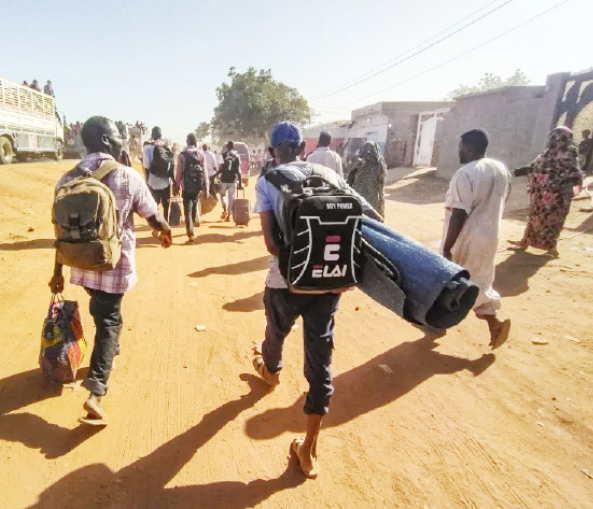The violence in Takum, Donga, Ussa, and Wukari in Taraba, as well as Ukum and Katsina/Ala in Benue States, has deep roots in the long-standing Tiv/Jukun crisis and associated criminal activities which has continuously undermined the stability and exacerbated existing tensions.
To resolve this ongoing conflict, security experts emphasise that Taraba State Governor Agbu Kefas, a Jukun man from the most affected Wukari local government area, needs to demonstrate political integrity by being fair, balanced, and sincere to both the Tiv and Jukun communities.
Additionally, to put an end to the senseless killings along the Benue/Taraba border, these stakeholders says it is crucial for Governor Hycient Alia of Benue and Governor Agbu Kefas of Taraba, in collaboration with the federal government, to engage with traditional leaders in both border areas to gather valuable intelligence and combat banditry.
The Tiv/Jukun crisis, our reporter can say, has a long-standing history of recurring violence over the years.
From records obtained, LEADERSHIP Sunday discovered that outbreaks of violence occurred in 1959, 1964, 1976, 1990-1992, 2000-2001, and again in 2019, leading to widespread destruction, loss of life, and the internal displacement of civilians. This ongoing conflict has strained the historically cordial relationship between the Tiv and Jukun ethnic groups.
The contentious issue revolves around citizenship, with the Jukun claiming to be the original inhabitants of Wukari and regarding the Tiv as settlers. Conversely, the Tiv assert their long-standing presence in the region, advocating for equal rights and alleging marginalisation within Taraba. On the other hand, the Jukun minority in Benue state also voices concerns over marginalisation, lack of job opportunities, and insecurity. The Tiv, labeled as “settlers,” face discrimination in education, employment, and political representation.

Consequently, the Tiv argue that they are fighting for their rightful status as indigenes of Taraba state. Over time, coexistence between the communities has become increasingly difficult. Their ongoing conflict resembles that of the Israelis and Palestinians: they rely on one another yet remain adversaries. Today, Benue State is often characterised as the Tiv state, while Taraba is identified with the Jukun, fostering political polarisation and physical segregation.
As violence escalates in Taraba, more Tiv individuals are seeking refuge in neighboring Benue. The Tiv population outnumbers that of the Jukun, allowing them to leverage their demographic advantage in electoral matters in Wukari and throughout Taraba state, a situation that the Jukun find unacceptable.
To foster peaceful coexistence, these experts have urged the Nigerian government to act on the findings of previous committees, develop an equitable sharing arrangement between the two ethnic groups, and constitutionally address citizenship rights.
The security adviser to the Taraba state Governor, Hon. Charles Maijankai,
told LEADERSHIP Sunday that genuine commitment from the affected communities is essential to end the killings and resolve the Tiv/Jukun crisis.
“The residents in the border areas must be open and provide information to security forces and the government. If you witness something, report it. The perpetrators are ordinary individuals living among the community, and many local leaders fear reporting their activities,” he said.
He emphasised that the governor has implemented several measures to combat crime, particularly in the southern zone. “In our recent security meeting, the governor instructed the police commissioner to ensure regular security patrols along the Takum-Wukari road, where most of the incidents occur. He has also allocated sufficient patrol vehicles and resources.”
“However, some community members have crucial information that could lead to the apprehension of the criminals. It is vital for security agents to collaborate with the locals to gather intelligence on those exploiting the Tiv/Jukun crisis for criminal activities.”
Maijankai asserted that the resolution of the crisis ultimately lies in the hands of the people living in the conflict zones.
During a visit to internally displaced persons (IDPs) affected by the Tiv/Jukun crisis, the Aku-Uka of Wukari, HRM Manu Ishaku, stated that the authority to facilitate the return of the IDPs rests solely with the state governor.
Internally displaced persons (IDPs) were gathered at the palace, looking for ways to return to their ancestral homes after three years of displacement.
“When the governor makes a decision, who am I to disagree? We are prepared to allow the IDPs to come back, but the key issue is whether their security can be guaranteed. Will they be safe if they return?” Manu questioned.
Governor Kefas recently voiced concerns about the IDPs’ return yet expressed his commitment to ensuring that those who fled due to the crisis could come back and resume farming activities.
“We are striving to make every part of Taraba peaceful and to facilitate the return of displaced individuals to their homes so they can engage in farming. However, there are still areas where the security of the IDPs cannot be assured. We cannot send people back to be harmed; that would be nonsensical,” the governor stated during a media briefing at the Government House in Jalingo.
LEADERSHIP Weekend reports that communities devastated in Takum, Donga, Ussa, and particularly Wukari, the hometown of Governor Dr. Agbu Kefas, have been living in IDP camps since 2019, lacking confidence about when they might return to their ancestral homes.






